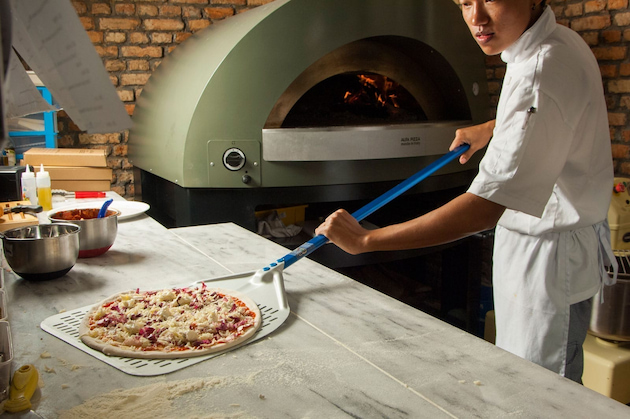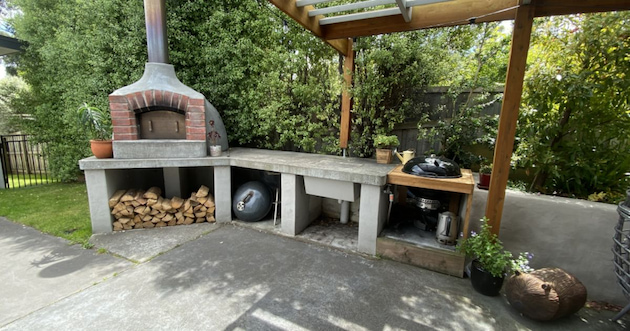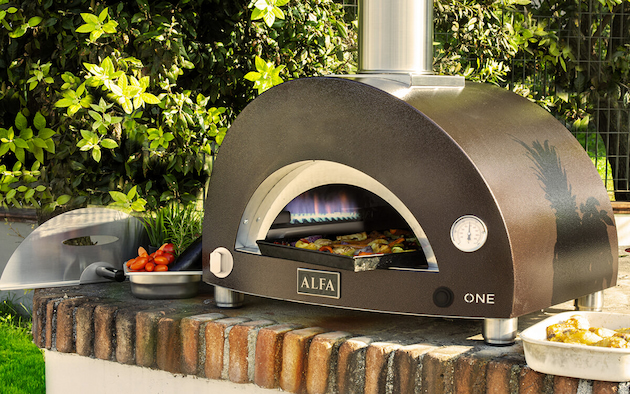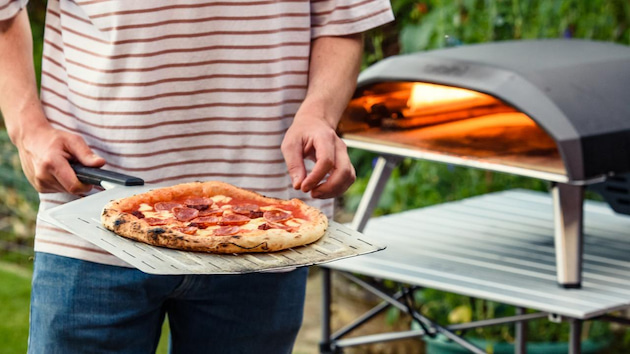It takes a special amount of willpower to be able to resist pizza. Those who love it can get enough of it and those who hate it, well, they’re very few and far between. So if you take that into consideration, your decision to open up your very own pizza place makes total sense. Just think about all of the pizza enthusiasts that will flock to your shop once you’ve got things up and running. Imagine their eyes filled with joy as they munch on the savoury flavour of your special recipe. Sounds like a dream, doesn’t it?
But see, if you want to turn it into a reality, opening up a pizza place and running it with great skill and enthusiasm alone isn’t going to cut it. Naturally, you’ll need the right baking equipment for your new business. And what’s more important to you than finding a good quality pizza oven? You’re absolutely right, nothing can top that. If you miss the mark on a pizza oven, you’re missing the whole point. But no worries, we’re here to steer you on the right track with our quick guide to help you find the most suitable one.

What Are the Different Types of Commercial Pizza Ovens?
To fire things up, your first consideration is the type of fuel you’ll be using. Generally speaking, there are two main ways you can go about it and we’ll be breaking down both.
Wood Fired Pizza Oven
As their name suggests, these types of ovens use timber to bake your goods. They’re by far the most common and longest-running type of burners thanks to their durable and safe build. Plus, some wood fired ovens can reach temperatures of about 400 °C which means you’ll be getting faster cooking times with little to no risk of burnt crusts. And if we’re being honest, nothing compares to the delicious taste of crisp pizza baked in a classic wood fired oven.
One very important thing you’ll need to consider here is the type of wood you use to cook your food. Basically, it’s not a good idea to use timber that’s been coloured or processed in any way because there’s a high chance you could add harmful chemicals to your pizza. Instead, we’d recommend using hardwoods like oak, maple, ash or birch. All of these are quite dense and heavy which means they’ll likely burn for longer periods of time. On the other hand, softwoods such as cedar and pine are more suitable for smaller ovens and shorter baking times.

In any case, it’s advisable to position the wood on the sides of the oven so that hot air moves in circular motions and bakes your dough evenly. Additionally, you need to make sure that your wood fired oven is placed in a location with adequate ventilation. You should also pay close attention to the amount of smoke that’s produced at all times. Despite the fact that wood-fired pizza ovens are quite efficient at baking your dough, they can turn into a potential fire hazard if not monitored carefully.
Gas Fired Pizza Ovens
These are somewhat easier to navigate and control. All you have to do is set the desired temperature and the oven automatically reaches and maintains it. It’s important to note that, when compared to wood-based ovens, you’ll be baking your pizza at a slightly lower temperature of about 300-350°C. But if we’re being honest, you probably wouldn’t be able to tell the difference anyway.

One of the things that make gas-fired ovens a convenient option is the fact that they’re very low maintenance. You can literally turn them on and go about your business without having to watch over them constantly in case things go awry.
How Do You Choose an Oven for Your Business?
With the typology out of the way, decision-making can still be a struggle. But don’t fret, there are a few other factors that can lead you in the right direction.
Materials
When you’re preparing your pizza, you need to make sure that all areas of the oven are capable of withstanding extremely high temperatures. In general terms, brick and stone are some of the most common materials used due to their resilience and high-temperature resistance. Either way, you should check in with your manufacturer on the recommended levels of heat so that you know what to expect. If you expose your oven to higher temperatures, you might end up cracking its walls and rendering it useless.
Size

There’s no point in cramming a small space with a large pizza oven, don’t you agree? Similarly, why would you get a tiny cooker for a spacious kitchen? You won’t be doing yourself or your business any favours in both cases. This is why you should carefully measure the space you have available and only then can you start shopping for an appropriately-sized pizza oven.
Capacity
This goes hand in hand with your oven’s size. Essentially, if you need a large number of pizzas produces in a short span of time, you’ll definitely need a larger baking chamber to accommodate all of your dough. Think about how big you want your business to be and consider the possibility of a future expansion as well. If things go well, would you be up for getting a new oven very soon? Probably not because it’ll likely put a strain on your budget. Work smarter, not harder.



